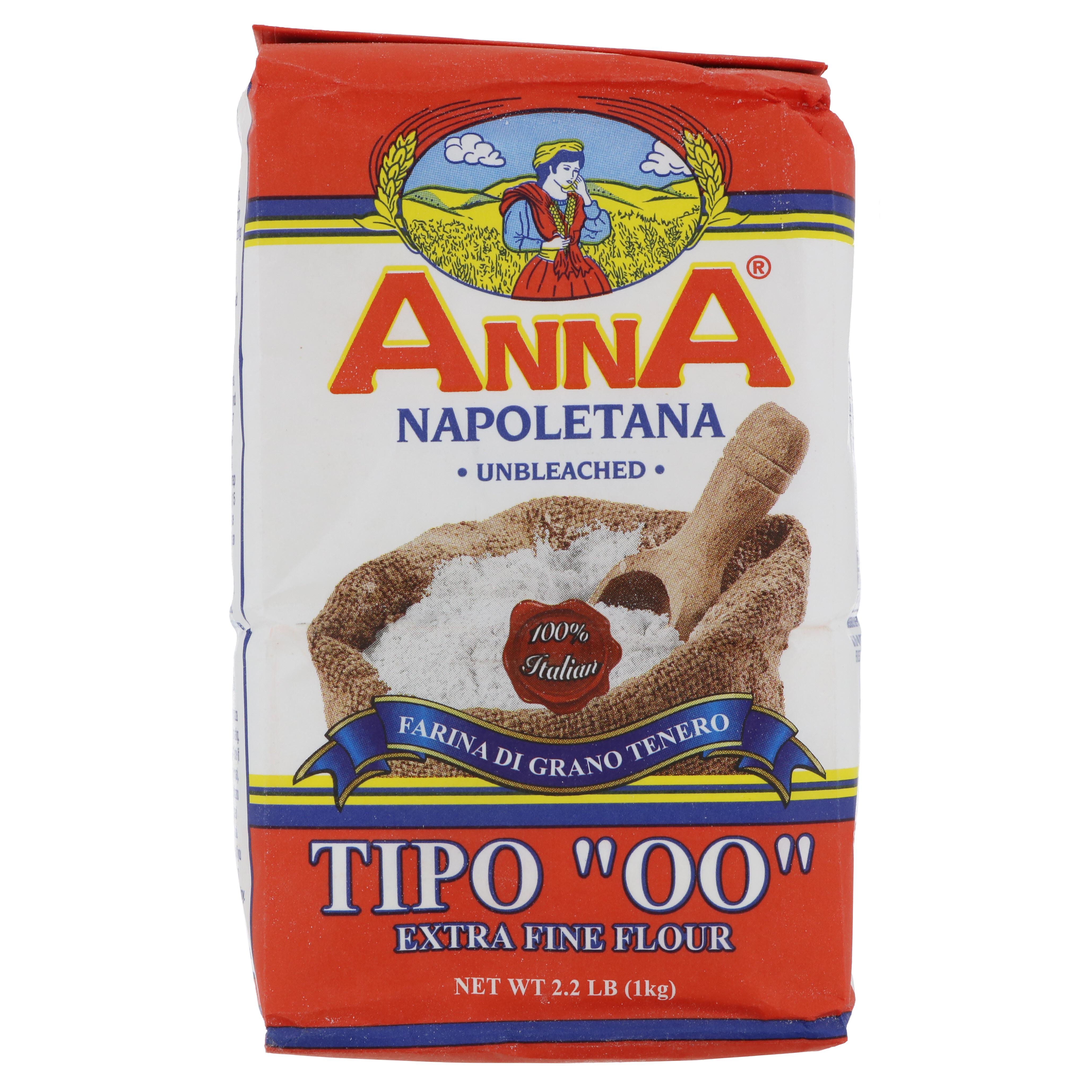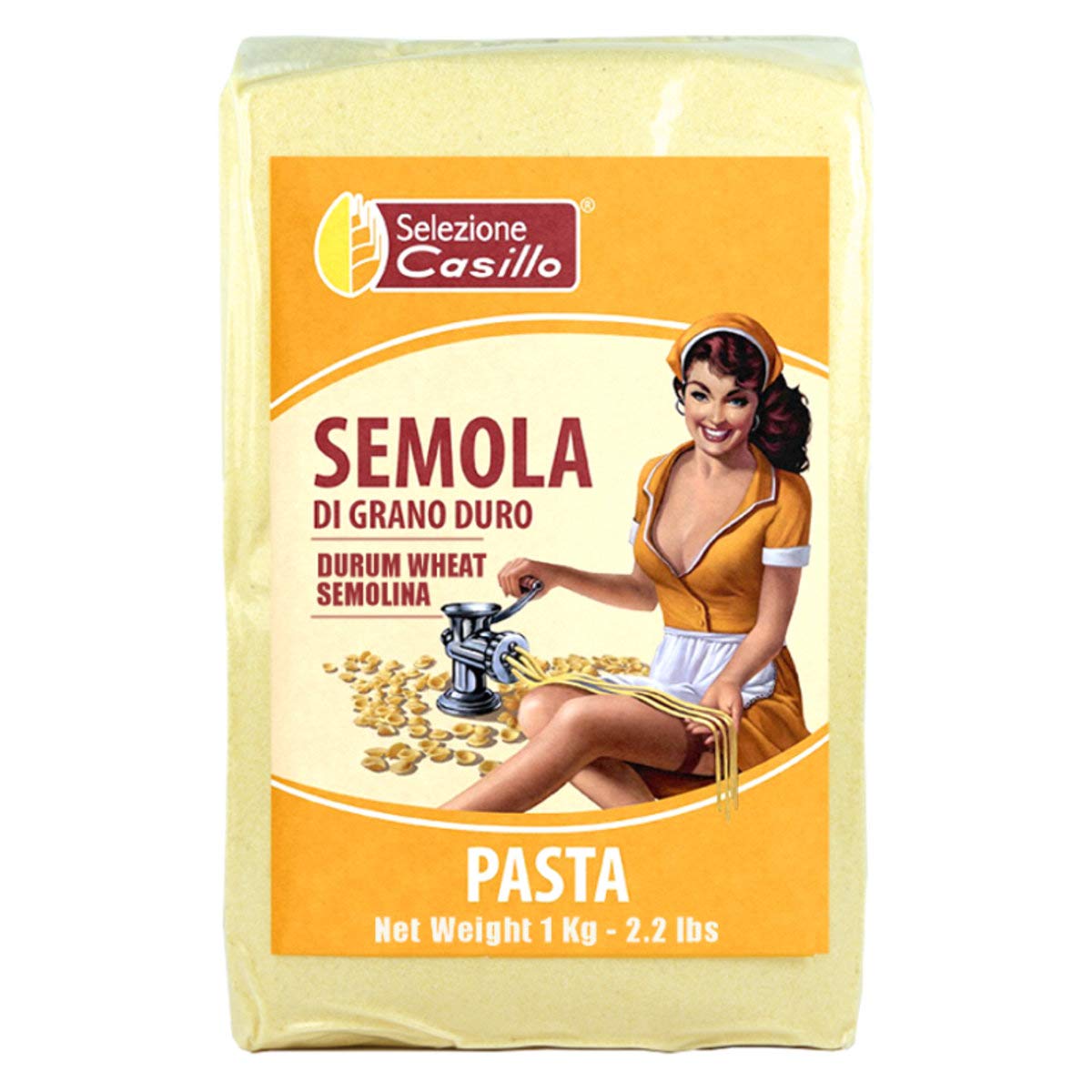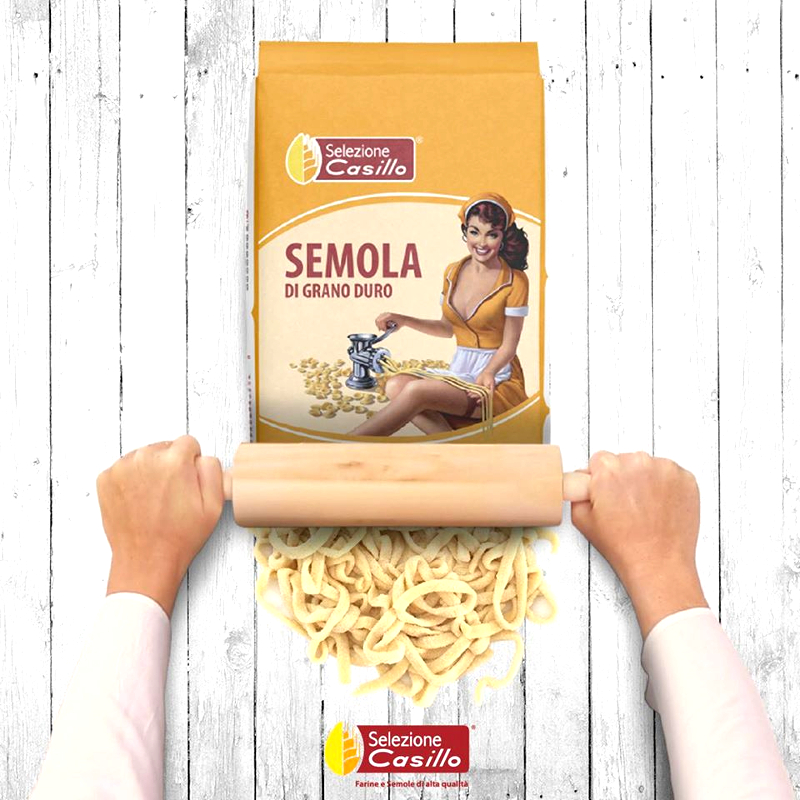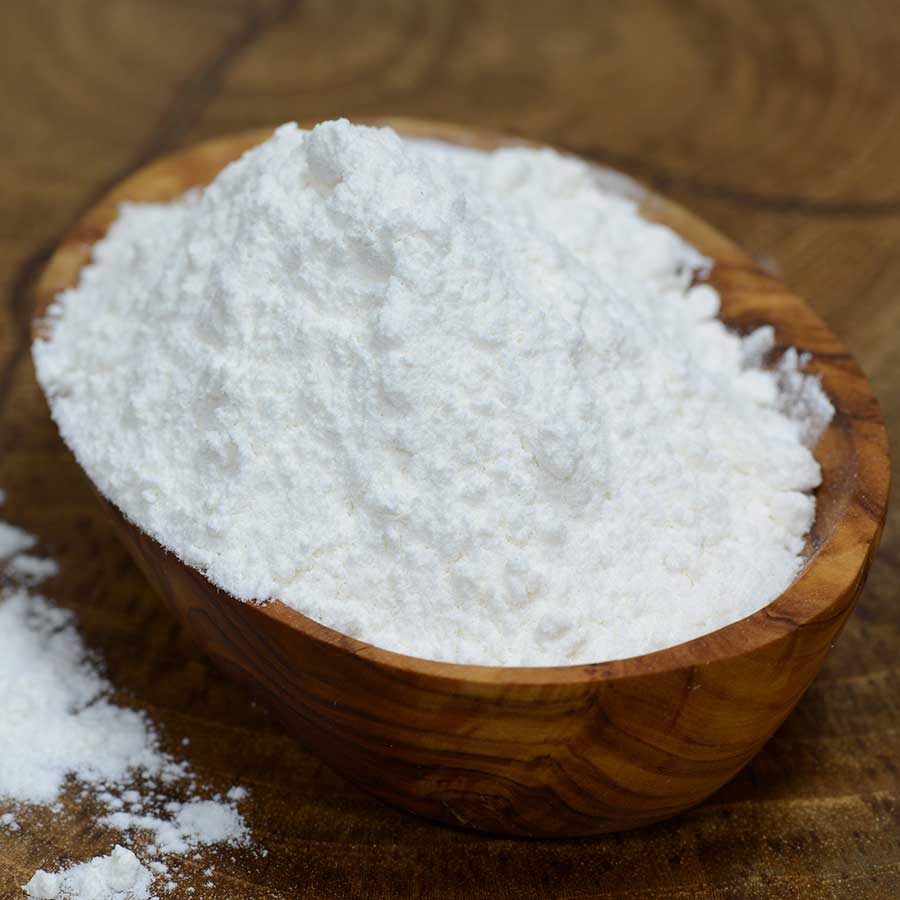Caputo Glutenfree Flour 1kg Glutenfree Pizza Flour
/pastadough12-5b9af8d1c9e77c002cab718d.jpg)
What's the Best Flour for Making Pasta?
Here at least there was a system. Flours are given a type number based on the weight of the ashes which remain after 100g of flour is burned. The higher the number, the more glutens there are and the stronger the flour is. So there is T45, T55, T65, T80, T110, and T150. The lower numbers are used for patisserie, the higher ones for bread.

Fresh as a Flour Heinen's Grocery Store
Pepper, that's what. And you'll find plenty of heat in this five-ingredient pasta perfection, an Italian recipe named for its star ingredients, cheese and pepper. This straightforward, yet decadent, Italian dish allows you to craft an easy weeknight staple that nevertheless feels (and tastes) elegant. It proves you don't need an extensive.

Tortellini Italian Pasta, Flour and Rolling Pin Stock Photo Image of
Grano duro, or durum/semolina wheat, flours work best for dragged pasta shapes and water-only pasta doughs, and even some types of bread. But like any brave chef, the fun part is to mix and match. Toss your fresh egg pasta in semolina to keep the pieces from sticking together, or use under pizza to deftly lift your pie off a sheet pan. Add some.

Italian Tipo Super Fine Flour The Best Flour For Pasta Savage Vines
Considered the gold standard for pasta and pizza dough, 00 flour is a finely ground Italian flour. Here in the U.S., we categorize flours by how much protein they contain, which directly affects the gluten formation in whatever we're making.They do it a little differently in Italy and other parts of Europe by categorizing flours based on how finely the flour has been ground.

Anna Napoletana Tipo "00" Extra Fine Flour Shop Flour at HEB
A simple and flavorful tomato, garlic, and white-wine sauce provides a base for the spicy seasoning. View Recipe. These are the classic Italian pasta recipes, including bolognese, lasagna, plus puttanesca, cacio e pepe, carbonara, tortellini en brodo, and more, that every home cook should know how to make.

Casillo Durum Wheat Semolina Type Italian Pasta Flour Chenab Impex
It would mean gluten content of about 8-9% with a W-value between 90-180. "Medium" flour gluten content would correspond with a gluten content of around 9-12% (with a W-value over 200 and up to 300). "Strong" flour would have a protein content of over 12% and a W-value over 300. There is even super glutinous flour with a 15-16% gluten.

Casillo Durum Wheat Semolina Type Italian Pasta Flour Chenab Impex
Semolina flour is the classic, traditional option for pasta making. This is the ingredient that's been used for hundreds of years by Italians, and if you're looking for the best pasta taste and texture, it's unbeatable. Semolina flour is made from durum wheat, and it has a much coarser texture compared to fine all-purpose flour.

4 x Caputo 00 Grade Italian Pizza & Pasta Flour 1kg
Instructions. On a flat surface place the flour and make a well in the middle, add the eggs and gently start to combine the the two, add a drizzle of olive oil and the salt, continue to bring the ingredients together and knead to form a smooth and elastic dough. Cover the dough with a clean cloth and let rest.

Collection of Italian Pasta, Flour and Chicken Egg Isolated Top View
If you love Italian pasta, you can't miss these 10 classic recipes from La Cucina Italiana, the ultimate guide to Italian food and culture. Learn how to make cacio e pepe, puttanesca, carbonara and more with simple ingredients and authentic methods. Discover the secrets of Italian cuisine and enjoy the taste of Italy at home.

Italian Pasta Flour 00 Flour Gourmet Food World
Flour is also categorized as grano duro (also listed as semola flour) and grano tenero (a softer type of wheat). Grano duro is slightly yellow, more granular, and more commonly used for pasta and some breads in the south of Italy. It's also knows as durum wheat flour. Grano tenero is generally what we think of as white flour, and is more.

Uncooked Italian pasta, flour and eggs — Stock Photo © Sveta615 141308966
With your hands, mix the eggs with the flours, incorporating a little at a time, until everything is combined. Knead the pieces of dough together. After ten minutes, make a big ball and wrap it in a cling film. Let it rest for 15/30 minutes. Make sure that your pasta maker machine is clamped firmly to a clean surface.

00 Flour from Italy for Pasta and Pizza Pasta, Food, Flour
Knead the dough for 10 minutes, noticing that the shaggy dough gradually becomes more soft and pliable. Form a ball with the dough and place in a plastic bag or wrap with plastic wrap. Set aside to rest for 30 minutes. Bring a large pot of salted water to a boil. Divide the rested pasta dough into 2-4 sections.

Mix Of Italian Pasta With White Flour Stock Photo Image of assortment
Top to bottom. Set a timer and knead the dough for about 10 minutes until a smooth dough ball forms*. You can also place the dough in a stand mixer with a dough hook to knead. Rest the pasta dough. Put the dough in a large clean bowl, cover with plastic wrap and let it rest for 30 minutes to overnight.

Pasta Flour The Authentic Italian Food Platform
Make a mound on a floured baking sheet or clean countertop with the semolina flour. Form a well in the middle of the flour mound. Add a tablespoon of olive oil into the water, and swirl them together. While working the flour mixture with one hand, slowly drizzle the water and oil mixture into the middle of the flour.

Caputo Glutenfree Flour 1kg Glutenfree Pizza Flour
Toss the hot pasta in the skillet with the cooked bacon and onion. Pour in the egg mixture, then turn the heat on low and toss the pasta until the sauce has thickened. If it seems too dry, add in the other 1/4 cup of pasta water. Season with salt, pepper, and extra grated Parmesan cheese.

Mix of Italian Pasta with White Flour Stock Photo Image of italy
One of the most popular flours for making pasta is semolina flour, which is a coarsely ground flour made from a particularly hard variety of wheat called durum. In fact, the word durum means hard (as in the word "durable"), in reference to the amount of force it takes to grind it. This hardness also happens to correspond with its protein.